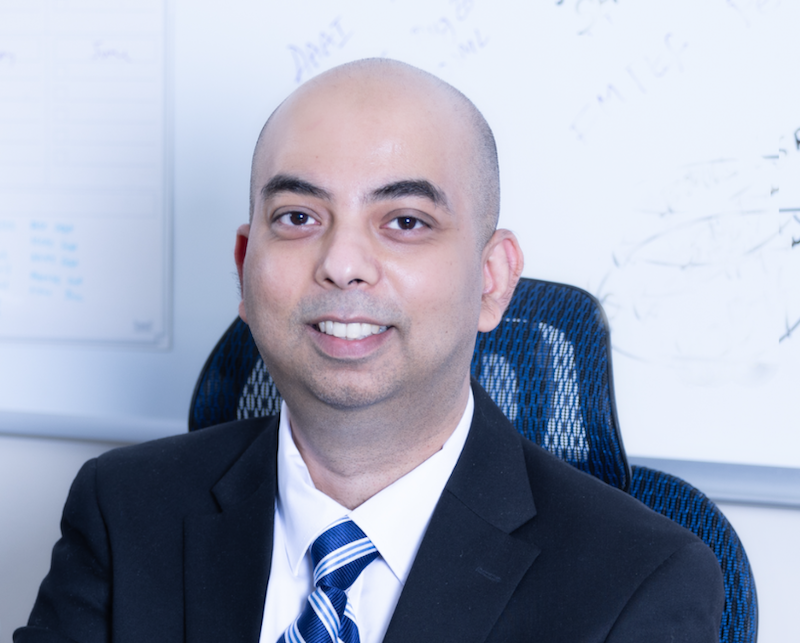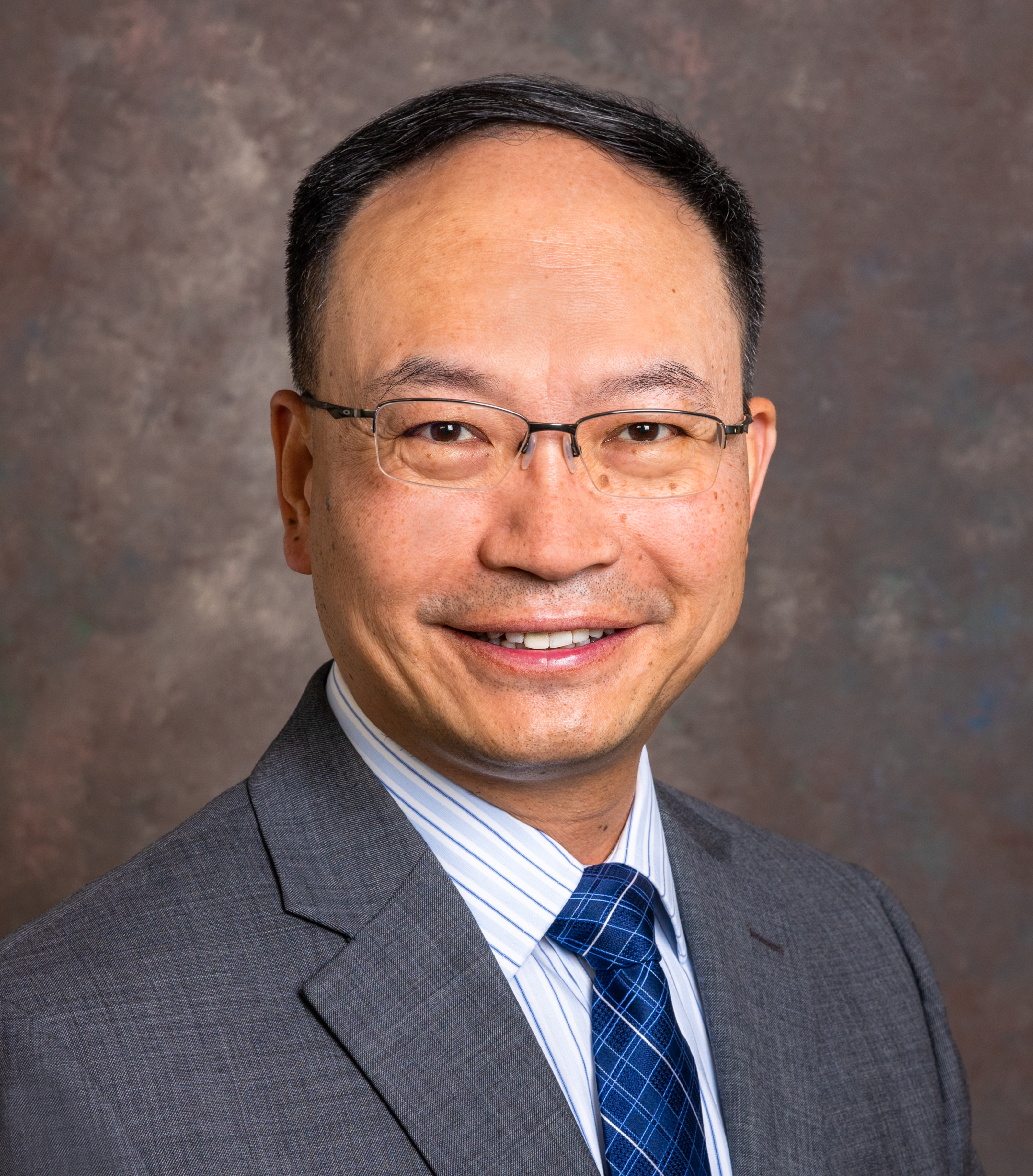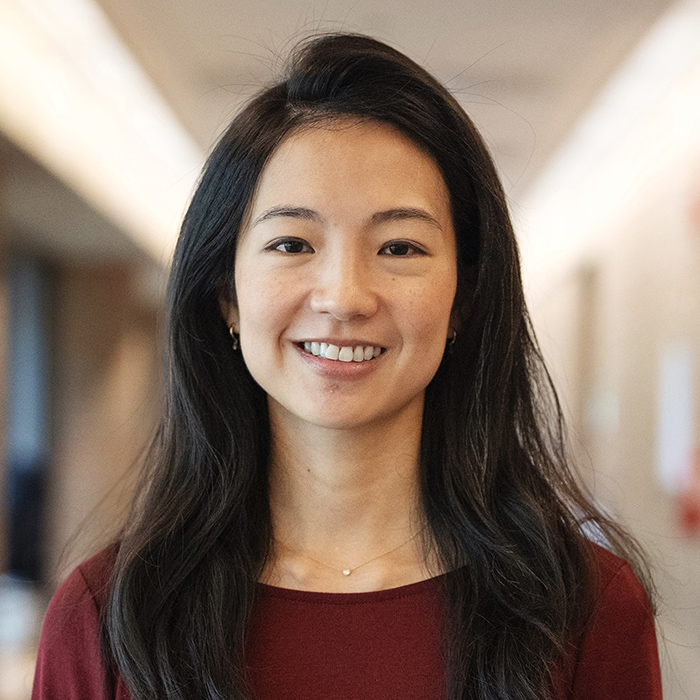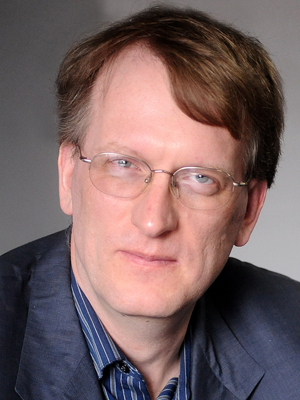Keynote
Main Conference
Keynote 1: Technical Challenges and Opportunities for Modern Edge Computation
Jeff White
CTO-Edge, Chief Technology & Information Office, Dell Technologies.
Dec. 6
Abstract:
Modern Edge compute is taking off driven by several industry trends and requirements. The opportunity promises to enable a set of data intensive use cases that require low latency. The technical challenges and opportunities of the scaled modern edge are
examined in this presentation.
Bio: Jeff White is the Industry CTO of Dell Technologies for the Automotive sector, specializing in Connected and Autonomous Vehicles and leading the company's Edge Technology strategy. With a focus on the development of
Dell's Intelligent Connected Vehicle platform, Jeff chairs the Dell Automotive Design Authority Council and drives the evolution of a comprehensive Dell Edge platform. His vast experience includes pivotal roles at early-stage AI
and process automation providers, Elefante Group, Hewlett Packard Enterprise, Ericsson, and Alcatel-Lucent. Jeff's early leadership stints saw him at the helm of National Transport Infrastructure Engineering at Cingular Wireless
(now AT&T) and Broadband Internet Operations at BellSouth (now AT&T). An alumnus of Southern Polytechnic University with a B.S. in Electrical Engineering, he served as Chairman of the Tech Titans Technology Association in North
Texas and contributed to the Texas Emerging Technology fund committee under Governor Rick Perry.
Keynote 2:
Shawn Davis
Director of Engineering - Automotive and
Edge, Red Hat
Bio: Shawn Davis is a seasoned Director with expertise in both hardware and software management, especially within embedded systems, manufacturing, and RF technology. Renowned for leading products from idea to release,
he possesses a unique ability to translate customer needs into product designs. Shawn has showcased exemplary leadership, mentoring talents from internships to managerial roles. Comfortable with high-level executive interactions
and technical details, he's skilled in global team management and development processes. With experience spanning government agencies and private sectors both domestically and internationally, Shawn stands as a bridge between varied
facets of technology and management.
Keynote 3: Enabling Akamai’s Cloud Computing Vision
Vinay Kanitkar
Akamai Fellow, VP Product & Platform
Architecture, Akamai Technologies
Bio: Vinay Kanitkar leads the Product and Platform Architecture team at Akamai. He’s an Akamai Fellow and 2008 recipient of Akamai’s prestigious Danny Lewin Award. He focuses primarily on Akamai’s technology evolution but
also works closely with Akamai’s ISP and technology partners, focusing on 5G/IoT strategy and internet scaling.
Panel I
On the Intersection of Generative AI and Edge Computing
Moderator
Dinesh Chnadra Verma
(IBM Fellow, IBM T J Watson Research Center)
Dinesh C. Verma is an IEEE Fellow, IBM Fellow, AAIA Fellow and Fellow of UK Royal Academy of Engineering. He has authored 11 books, 200+ technical papers and 200+ U.S. patents. He has chaired/vice-chaired IEEE technical committee on computer communications
and IEEE Internet technical committee. He has led several multi- national multi-organizational research programs. He has contributed to several IBM products and service offerings including significant contributions to server networking
stack, network management products and cellular network analytics. He has served in many roles at IBM Research, including CTO of Edge Computing, Chief Scientist of Research Consulting Partnership, and Strategist for Edge IoT research,
and is currently serving as the theme leader for exploratory science theme in the area of futuristic networks and distributed systems.
Panelists
Susmit Jha
(Technical Director, NuSCI/CSL, SRI International)

Dr. Susmit Jha is a Technical Director in the Computer Science Laboratory at SRI International , where he leads the research group on Neuro-symbolic Computing and Intelligence. Dr. Jha completed his Ph.D. in Computer Science from UC Berkeley in 2011,
where his thesis work on “Automated Synthesis Using Structurally Constrained Induction and Deduction” was supported by the Berkeley Fellowship and was awarded the Leon O Chua Award. Before joining SRI, Dr. Jha was at Intel Strategic
CAD Labs and Raytheon Technologies Research Center at Berkeley. He is the recipient of the 10-year Most Influential Paper award at IEEE/ACM ICSE 2020 . The Defense Advanced Research Projects Agency (DARPA) has named Dr. Susmit
Jha to the Information Science & Technology (ISAT) Study Group beginning in July 2023 where is currently leading a study on large language models for code. Dr. Jha has published over 80 peer-reviewed publications with over
3400 citations in AI, ML, and automated reasoning venues such as NeurIPS, ICLR, ICML, CVPR, ICCV, AAAI, IJCAI, JAR, PLDI, and CAV. Dr. Jha has been a Principal Investigator on DoD and other US Govt. programs on trustworthy, resilient,
and neuro-symbolic AI, including: DARPA Assured Neuro Symbolic Learning and Reasoning, DARPA Symbiotic Design on NeuroSymbolic Design of cyberphysical systems, DARPA Assured Autonomy, and IARPA TrojAI.
Maroun Touma
(Senior Software Architect, IBM Research)
Maroun Touma is a Software Architect with IBM T.J. Watson Research Center in Yorktown, NY. His current focus is on edge system resiliency and full-stack provisioning and deployment of Machine Learning Models and applications at the
edge of the network. Running Artiticial Intelligence, and more specifically Foundation Models on the edge of the network present numerous challenges that are core to Maroun's current research interest. Maroun’s career span
over 35 years and holds a Master degree in Computer Science and a D.E.A in Distributed Systems from the University of Paris 6.
Stephane Ribot
(Cisco)
Stephane Ribot is the Business Director of Cisco’s Edge Cloud Services. He specializes in IT transformation using disruptive technologies like Networking, AI, Cloud, and Mobile. He leads game-changing Cloud Native - Edge Solutions
at Cisco, focusing on monetizing unique solutions and driving innovation. Prior to Cisco, Stephane worked as a consultant for global enterprises and governments, leading the IoT and Big Data consulting practice at CenturyLink now
Lumen. He also led industry solutions at Orange Business Services, focusing on market entry for various sectors. Stephane holds degrees in Mathematics, an MBA, and a PhD with a focus on Mobile traffic Data Analysis. He actively
contributes to academic research and participates in conferences worldwide.
Reginald Hobbs
(Army Research Labs)
Dr. Reginald Hobbs is a distinguished computer scientist at the U.S. Army Research Laboratory with expertise in information sciences, especially natural language processing. He's made significant contributions in text-processing technology
and foreign language translation. Additionally, Hobbs has taught for over 20 years at historically black colleges, including Spelman College and Howard University, where he mentors in the ARTSI robotics program. He was recently
honored at the Black Engineer of the Year STEM Awards Conference for his impactful career in both research and education.
Panel II
Edge Computing Research and Education
Moderator
Weisong Shi
(University of Delaware)

Weisong Shi is a Professor and Chair of the Department of Computer and Information Sciences at the University of Delaware (UD). He leads the Connected and Autonomous Research (CAR) Laboratory. Dr. Shi is the Center Director of a recently funded NSF eCAT
Industry-University Cooperative Research Center (IUCRC) (2023-2028), focusing on Electric, Connected, and Autonomous Technology for Mobility. He is an internationally renowned expert in edge computing, autonomous driving, and connected
health. His pioneer paper, "Edge Computing: Vision and Challenges,” has been cited more than 6000 times. Before joining UD, he was a professor at Wayne State University (2002-2022). He served in multiple administrative roles, including
Associate Dean for Research and Graduate Studies at the College of Engineering and Interim Chair of the Computer Science Department. Dr. Shi also served as a National Science Foundation (NSF) program director (2013-2015). He was
the chair of the IEEE Computer Society Special Technology Community on Autonomous Driving Technologies (ADT) and the Strategic Planning Committee member of the Autoware Foundation. He is a Fellow of IEEE and a member of NSF CISE
Advisory Committee. More information can be found at http://weisongshi.org.
Panelists
Mahadev Satyanarayanan
(Carnegie Mellon University)
Satya's multi-decade research career has focused on the challenges of performance, scalability, availability and trust in information systems that reach from the cloud to the mobile edge of the Internet. In the course of this work, he has pioneered many
advances in distributed systems, mobile computing, pervasive computing, and the Internet of Things (IoT). Most recently, his seminal 2009 publication “The Case for VM-based Cloudlets in Mobile Computing” and the ensuing research
has led to the emergence of Edge Computing (also known as "Fog Computing"). Satya is the Carnegie Group Professor of Computer Science at Carnegie Mellon University. He received the PhD in Computer Science from Carnegie Mellon,
after Bachelor's and Master's degrees from the Indian Institute of Technology, Madras. He is a Fellow of the ACM and the IEEE.
Suman Banerjee
(University of Wisconsin, Madison)
Suman Banerjee received his PhD in Computer Science from University of Maryland in 2003 and joined the faculty of University of Wisconsin-Madison. He is the winner of the ACM SIGMOBILE Rockstar Award in 2013 (awarded for early career achievements in the
field of mobile computing and wireless networking). He is currently serving as the chair of ACM SIGMOBILE (since July 2013). He received an NSF Career Award in 2008. Leading the WIsconsin WIreless and NetworkinG Systems (WiNGS)
Laboratory, his research innovations range from detecting non-WiFi interferers with "Airshark" to enhancing vehicle internet connectivity through "WiRover," which won the Wisconsin Governor's Business Plan Competition in 2011.
Jiasi Chen
(University of Michigan)

Jiasi Chen is an Associate Professor in the EECS department at the University of Michigan, having previously served on the faculty of the University of California, Riverside. Holding a Ph.D. from Princeton University and a B.S. from Columbia University,
Jiasi's research bridges computer and wireless networks, mobile computing, and multimedia systems, with a recent focus on systems support for the metaverse and mobile generative AI. This research often melds mathematical optimization
with systems implementation. Among numerous accolades, Jiasi has received the NSF CAREER award in 2020, the Meta Faculty Research award in 2021, and has been recognized for contributions to academic papers at conferences like ACM
SenSys and IEEE SECON. Beyond research, Jiasi co-founded the ACM-Women chapter and served as the Equity Advisor for the Bourns College of Engineering at UCR. Originally hailing from Halifax, Canada, Jiasi is actively recruiting
PhD students for the 2024-25 academic year.
Industry Invited Talks
Scalable AI cluster architectures and the implementation at the edge
Jim Xu
(Micas Networks)
Jim Xu is the Chief Architect in Micas Networks, in charge of the design and solutions for Micas networks' data center network products, AI cluster network products, and interconnected edge data center architecture. Before joining Micas Networks, he was
a principal engineer in Zenlayer which is one of the global leading edge cloud service providers, and a chair of Akraino open source community under LF Edge in the Linux Foundation. He held over 15 US patents in related technologies
areas, and made public talks about DPDK, SDN controller, crypto technologies and edge computing media solutions.
Computationally Efficient Multimodal Foundation Models
Martin Renqiang Min
(NEC Laboratories America)
Martin Renqiang Min is the Department Head of Machine Learning, NEC Laboratories America. He received his MSc and PhD degrees in Computer Science from Machine Learning Group, Department of Computer Science, University of Toronto. He did a one-year postdoc
at Yale University. His text-to-video research was reported by Science, MIT Technology Review, and many other international news media. More information about his latest research can be found from his webpage:
https://www.cs.toronto.edu/~cuty
MLOps for Edge AI based Services in Edge Environments
Dinesh Verma
(IBM TJ Watson Research Center)
Dinesh Verma, an IBM Fellow and Chief Scientist at IBM Research, specializes in Public Sector innovation. Educated at the Indian Institute of Technology and UC Berkeley, he's an acclaimed IEEE Fellow and Royal Academy of Engineering, UK Fellow. Since
joining IBM in 1992, Verma has shaped the fields of autonomic and policy-based networking, contributing to over eleven technical books and various bilingual publications through Chanda Books. His international collaborations highlight
his standing as a leading figure in network and cognitive computing research.
Foundation Models on the Edge
Maroun Touma
(IBM)
Maroun Touma is a Software Architect with IBM T.J. Watson Research Center in Yorktown, NY. His current focus is on edge system resiliency and full-stack provisioning and deployment of Machine Learning Models and applications at the edge of the network.
Running Artiticial Intelligence, and more specifically Foundation Models on the edge of the network present numerous challenges that are core to Maroun's current research interest. Maroun’s career span over 35 years and holds
a Master degree in Computer Science and a D.E.A in Distributed Systems from the University of Paris 6.
Workshop Invited Talks
The rural edge: How can we get true broadband to everybody?
Henning Schulzrinne
(Professor in the Dept. of Computer Science at Columbia University, USA)

Prof. Henning Schulzrinne, Levi Professor of Computer Science at Columbia University, with Ph.D. from the University of Massachusetts in Amherst, Massachusetts. MTS at AT&T Bell Laboratories; associate department head at GMD-Fokus (Berlin); now CS and
EE departments at Columbia University. Chair of Computer Science 2004 to 2009; Engineering Fellow, Technical Advisor and Chief Technology Officer of Federal Communications Commission (FCC) 2010-2017; technology fellow for Sen.
Wyden in 2019-2020; now broadband advisor at NTIA. Protocol standards co-developed by him, including RTP, RTSP and SIP, are now used by almost all Internet telephony and multimedia applications.
Abstract: Edge computing makes the most sense where the users are far from cloud computing infrastructure, typically located just outside urban areas. However, smart agriculture and manufacturing are usually found
in less densely populated areas. Without middle-mile and last-mile fiber, compute-intensive applications and even 5G networks are unlikely to be feasible in lower-density areas. We discuss why fiber deployment in rural areas has
lagged, even in high-income countries, and what approaches are being taken. We will also discuss some economic and operational challenges that may discourage edge computing at scale (and explain why deployment has been underwhelming).
For example, modern fiber networks are designed to be passive, with homes up to 20 miles away from the first active component.
Low Latency Mobile Edge Cloud Services in Next-Generation Access Networks
Dipankar Raychaudhuri
(WINLAB, Rutgers University, Technology Center of NJ)

Dipankar Raychaudhuri is Distinguished Professor, Electrical & Computer Engineering and Director, WINLAB (Wireless Information Network Lab) at Rutgers University. As WINLAB's Director, he is responsible for an internationally recognized industry-university
research center specializing in wireless technology. He has served (or is serving) as principal investigator for several large U.S. National Science Foundation funded projects including the "ORBIT" wireless testbed, the
“MobilityFirst” future Internet architecture, and the COSMOS city-scale platform for advanced wireless research. Dr. Raychaudhuri has previously held corporate R&D positions including: Chief Scientist, Iospan Wireless (2000-01),
Assistant General Manager & Department Head, NEC Laboratories (1993-99) and Head, Broadband Communications, Sarnoff Corp (1990-92). He obtained the B.Tech (Hons) from IIT Kharagpur in 1976 and the M.S. and Ph.D degrees from
SUNY, Stony Brook in 1978, 79. He is a Fellow of the IEEE and the recipient of several professional awards including the Rutgers School of Engineering Faculty of the Year Award (2017), IEEE Donald J. Fink Award (2014), Indian Institute
of Technology, Kharagpur, Distinguished Alumni Award (2012), and the Schwarzkopf Prize for Technological Innovation (2008).
Abstract: Next generation wireless access networks (5G and beyond) are being designed to support mobile or multi-access edge cloud (MEC) services with tight latency constraints. In this talk, we consider the design
challenges of realizing low latency applications such as augmented/virtual reality (AR/VR) and cyber-physical systems, starting with an identification of bottlenecks associated with current technologies. An end-to-end approach
for latency reduction is proposed via improvements to the radio access layer, the mobile core network architecture and the edge cloud subsystem. Specific techniques for reducing latency are discussed, including redesign of the
mobile core network to eliminate centralized gateways and non-essential signaling overhead, virtual network protocols with application- specific routing (ASR), real-time scheduling and orchestration of cloud tasks, and ad-hoc sharing
of computing resources in the region (called public MEC or “pMEC”). The talk concludes with a brief introduction to the NSF-supported COSMOS testbed deployed in New York City, now being used to support experimental research on
emerging edge-cloud enhanced wireless systems.